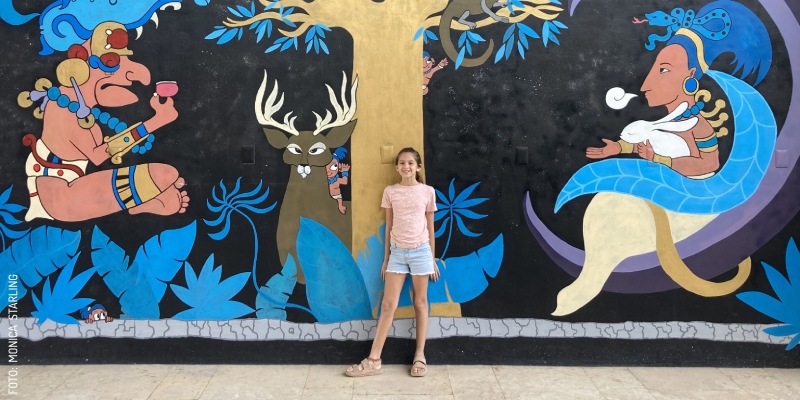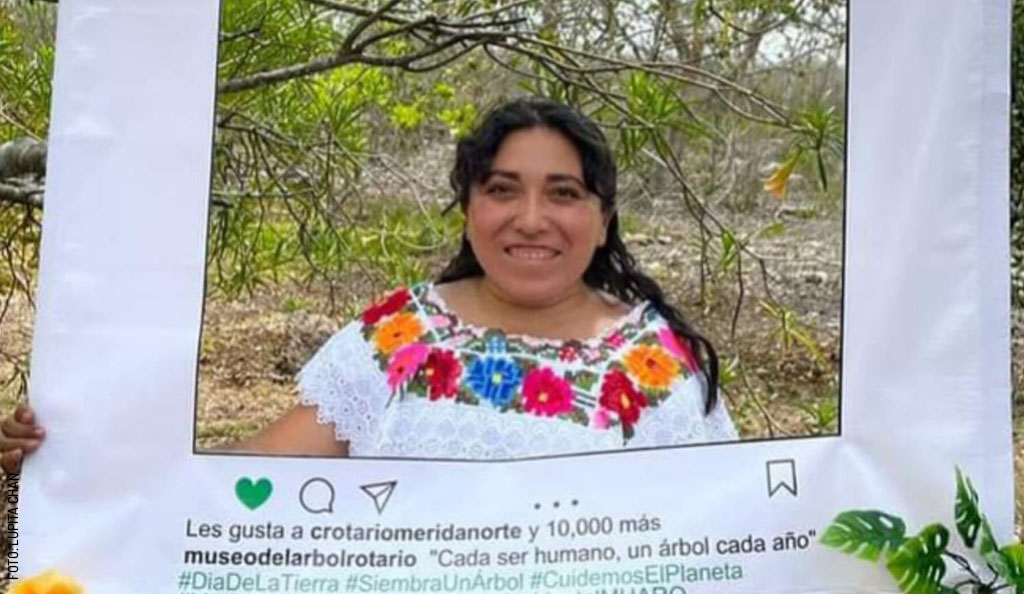
The Poetry of a Maya Woman: Lupita Chan
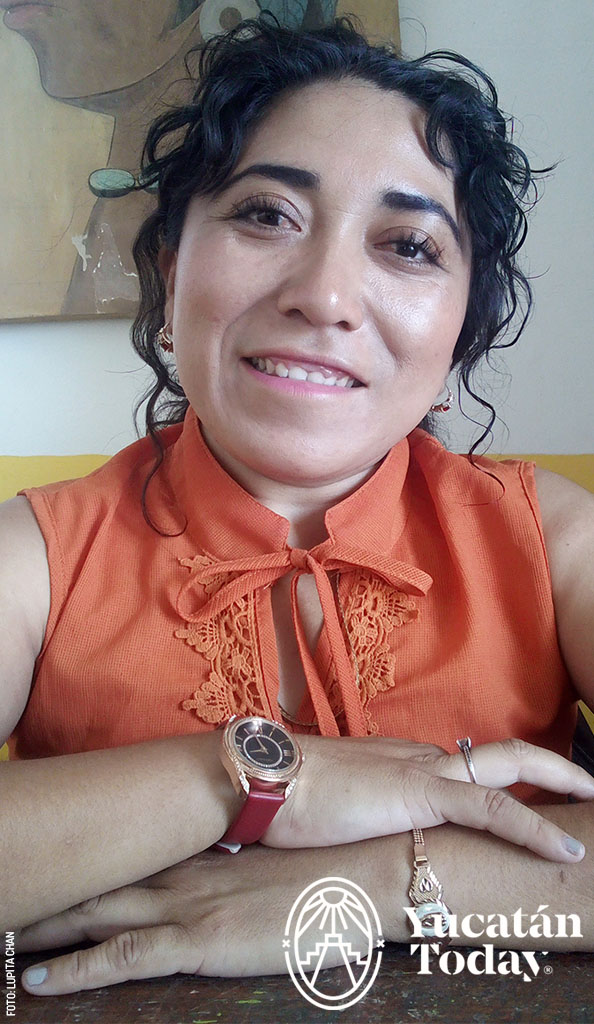 Everyone has a language of their own, which means that everyone can create poetry. Among those who make and work with words are the strong, perseverant, valiant, and dedicated women, committed to culture itself. This is how Guadalupe de Jesus Chan Poot, a Maya language poet, defines herself.
Everyone has a language of their own, which means that everyone can create poetry. Among those who make and work with words are the strong, perseverant, valiant, and dedicated women, committed to culture itself. This is how Guadalupe de Jesus Chan Poot, a Maya language poet, defines herself.
“Poetry is being able to express my feelings, and another way to teach different aspects of the Maya language,” says the author and translator known to many as Lupita Chan.
“I have been writing poetry for several years now. I started when my grandfather gifted me a text written in Maya. I started to translate it. This is how I learned until I started taking literary creation classes in Maya at the Centro Estatal de Bellas Artes (the State Center for Fine Arts). I ended up writing poetry.”
Creating in Maya is a song with its own language. “When I write poetry in Maya, I do so thinking in Maya.” It is, she insists, a thought of its own; a complete culture. Talking about a poem that is written in an indigenous language, she says, “when translated into Spanish it loses some meaning. It might be that in Spanish it doesn’t rhyme, while in Maya it has a very special sound.” When translating Spanish to Maya, from the literal to the literary, from the institutional to the ordinary, “we must use our imaginations.”
Just as there is Maya poetry, there is poetry that is unique to Maya women. Lupita Chan knows them up close. Each one has a special way of writing. Some write about their life, their childhood, and their history, someone that they love. “I like to write about nature, the stars, the sky, the sun, the fields…”
The verses that Lupita recited and that are a part of the “Black Panther, Wakanda Forever” soundtrack, named “ In Ka’ajal (My Village) ,” build on the resistance and pride of speaking Maya language that have been constant themes in her work.
“There have always been Maya women who write more than poetry; those who make music and other activities focused on the Maya culture, who have not been seen or recognized. I feel that, after the movie, our Maya language has had more visibility. I also met more women writers.”
Some of them include Elisa Chavarrea Chim, María Jesús Pat Chulim, Yazmín Novelo, and Inés Hau. From other parts of the Península, there’s Briceida Cuevas Cob, Margarita Ku Xool, Sasil Sánchez Chan, Silvia Canché, María Luisa Góngora Pacheco, Irene Dzul Chablé, Roberta Ek Chablé, Gertrudis Puch Yah, Flor Marlene Herrera, Arminda Chí Nahuat, María Luisa Góngora, and Sol Ceh Moo, just to mention a few of the many talented Maya women who write. 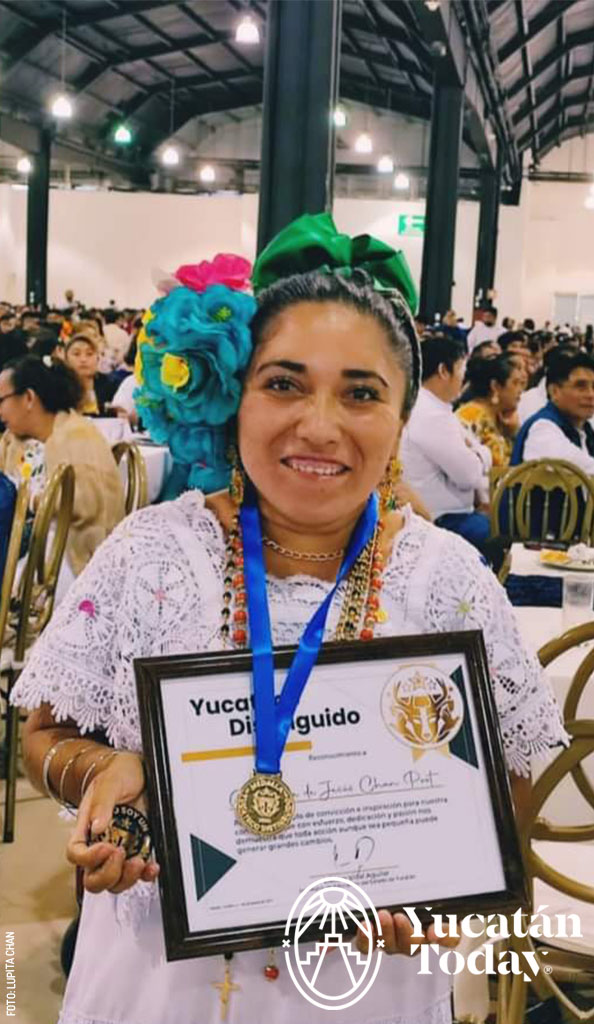
Also a rap lyricist, Lupita presented Ko’one’ex Ko’olel in Tabi. “Let women speak, let them not be silent, because they are strong.” This composition strengthens the message of dignity that also appears in the verses that have taken this writer to new levels. A member of the ADN Maya collective, we find Lupita in sync with musicians like Pat Boy and Yaalen K’uj.
Lupita is a luminous mosaic. Fifteen years ago she worked with Allison Hopkins, the author of the study “Medicinal Plant and Remedy Knowledge and Social Networks in Tabi.” This scientific work is repeated in the community at the hand of Lupita Chan, the current Director of Culture in the municipality of Sotuta and a promoter of Maya-language poetry reading and writing.
This is how and why poetry by Maya women exists, persists, and is renewed. Naming them and reading their work is, like creating poetry, something everyone can do.
Photography by Lupita Chan for its use in Yucatán Today.

Author: David S. Mayoral
Dave Mayoral (1998) believes that it is difficult to write in the third person without laughing while trying, but his training in Modern Language and Literature, History of Contemporary Art and Cultural Management usually helps him a lot...
¿Enamorado de Yucatán? Recibe en tu correo lo mejor de Yucatán Today.
No te pierdas nuestros mejores artículos y la edición digital cada mes antes que nadie.
Related articles
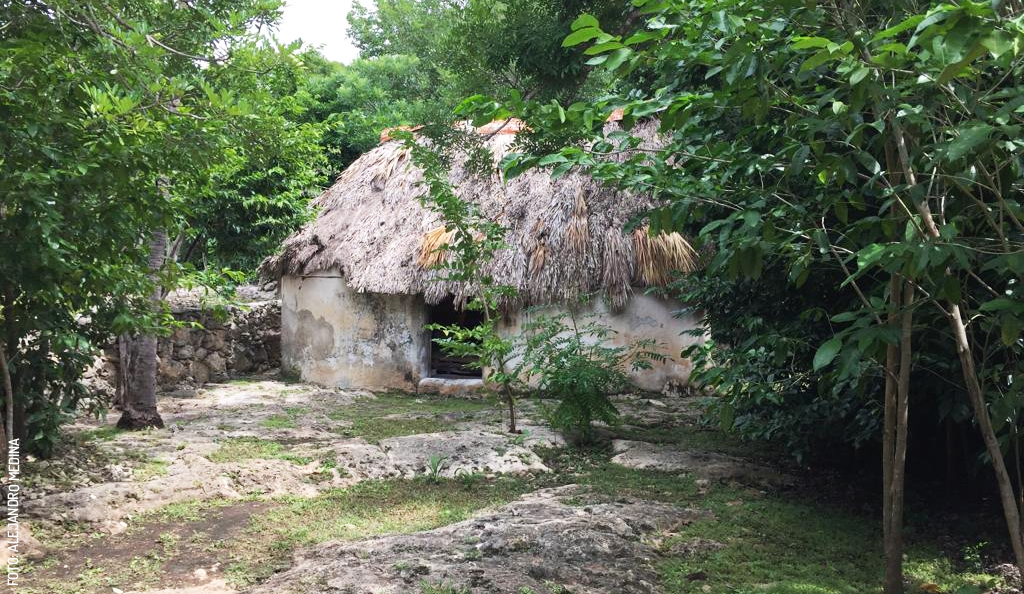
Telchaquillo: The Past in Today
When you visit Telchaquillo, you’ll notice the warmth of its people. Because it's a small town, everyone knows everyone and you will be referred to...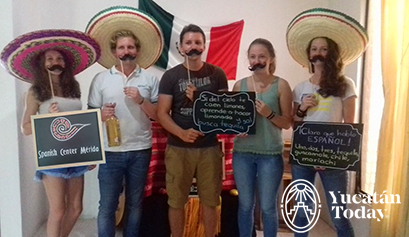
Language Schools in Mérida
Everyone knows that the best way to learn a language is to immerse yourself in the culture where that language is spoken. For years, Mérida has...